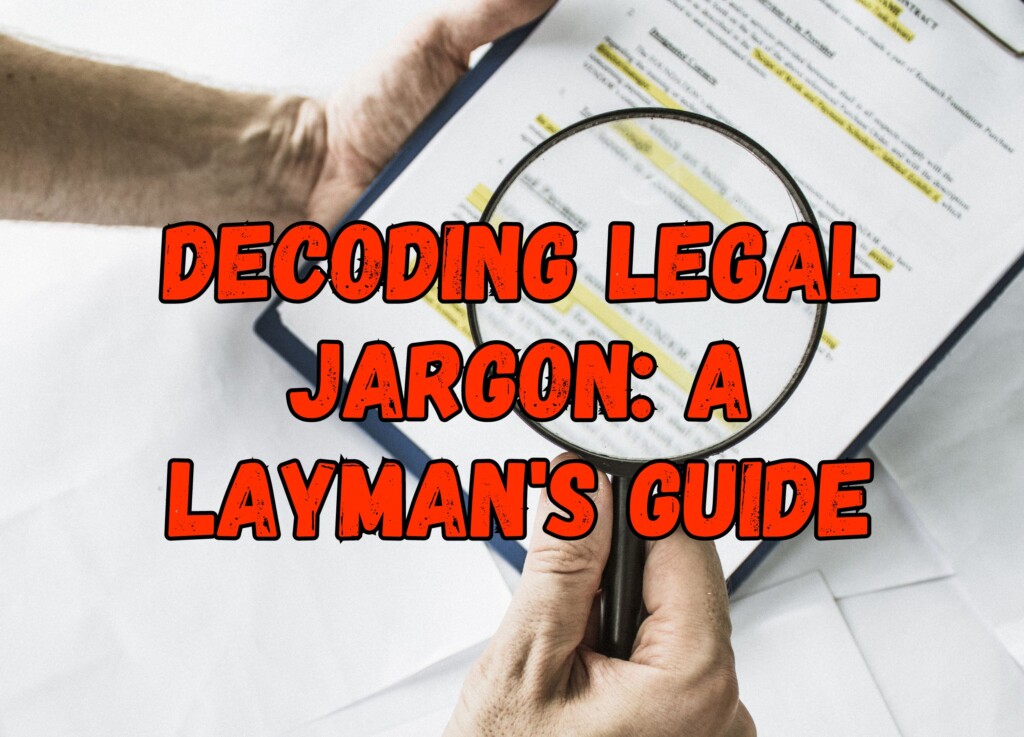Why is Legal Jargon So Confusing?
Legal jargon often leaves people feeling perplexed, even intimidated. But why does it have to be so confusing? The root of the problem lies in the specialized nature of legal language. Lawyers use specific terminology to ensure precision and clarity in legal documents and court proceedings. Many of these terms are derived from Latin, old English, or French, reflecting the history and evolution of the legal system.
This complexity, while necessary for professionals, makes it difficult for non-lawyers to fully understand the law. Legal jargon can often obscure meaning for the average person, requiring you to decode terms or rely on experts. If you’ve ever tried to grasp legal concepts like battery in legal terms, you’ll understand just how challenging it can be without proper context.

What Are Examples of Legal Jargon?
Legal jargon refers to specialized terms that are commonly used in the legal profession but often confuse the average person. These terms are meant to add precision, but they can feel overwhelming if you’re unfamiliar with the language. Here are a few examples of commonly used legal jargon:
- Habeas Corpus: A legal action or writ by means of which detainees can seek relief from unlawful imprisonment.
- Subpoena: A legal document ordering someone to attend court as a witness or to produce evidence.
- Tort: A wrongful act leading to civil legal liability.
- Amicus Curiae: Literally “friend of the court,” this refers to someone who is not a party to a case but offers information or insight relevant to the case.
- Res Judicata: A principle that a matter cannot be re-litigated once it has been judged in court.
If you’re navigating legal situations or trying to better understand complex terms in legal documents, it’s essential to get familiar with this jargon. For example, if you’re mastering legal strategies, learning how to properly use these terms can help you become more effective in the courtroom, as seen in this guide on mastering the art of legal argumentation.
Why Do Lawyers Use Legal Jargon?
Lawyers use legal jargon to ensure that their language is precise and universally understood within the legal community. Legal documents, contracts, and court proceedings require a high level of accuracy to avoid misinterpretation, and jargon helps achieve that. For instance, a term like res judicata is more concise and universally recognized in legal contexts than saying “a matter already judged and cannot be litigated again.”
Moreover, much of the legal language has roots in Latin and old English, which makes it sound more complicated to those outside the profession. While this language serves its purpose in the courtroom, it often alienates people unfamiliar with it, making legal documents difficult to understand for the average person. That’s why it’s essential to have resources that help simplify these terms.
If you’ve ever encountered strange legal terms while navigating issues like Missouri’s odd laws, you’ve probably felt the need for translation. To see how these strange terms apply in real life, check out Missouri’s most bizarre laws.
What is Another Word for Legal Jargon?
Another way to refer to legal jargon is “legalese.” This term is often used to describe the complex and technical language used in legal documents. While legalese is essential for precision, it can be difficult for non-lawyers to understand. Lawyers use this type of language to ensure that their contracts and legal writings are unambiguous, but for the layperson, it often requires translation into simpler terms.
Legalese can create barriers to understanding your rights, which is why resources that break down complex legal concepts into plain English are so valuable. If you find yourself navigating a legal situation and struggling with legalese, learning more about how laws and legal systems work can help. For example, when dealing with government actions like congressional censure votes, understanding the legal language behind these decisions is key.
How to Navigate Legal Jargon as a Non-Lawyer
While legal jargon can be overwhelming, there are ways to simplify the process and make legal language more accessible. Here are some tips for navigating legal jargon as a non-lawyer:
- Use Online Resources: Websites and legal dictionaries can help you break down complicated terms. They offer easy-to-understand definitions for legal phrases like subpoena or tort.
- Ask for Clarification: If you’re working with a lawyer, don’t hesitate to ask for a simplified explanation. A good attorney should be able to explain legal concepts in a way that you can understand.
- Focus on Key Terms: When reviewing legal documents, focus on the most critical parts—such as the obligations, rights, and consequences—rather than trying to understand every single word of legalese.
- Rely on Legal Guides: Having the right guidance is essential. For example, if you’re crafting a legal document or need a deeper understanding of a legal situation, check out this guide on crafting a winning project proposal for step-by-step assistance.
Learning how to interpret legal jargon can empower you when dealing with contracts or legal cases, making sure you know exactly what you’re agreeing to or facing in court.
Simplifying Legal Jargon for Better Understanding
In the legal world, legal jargon or legalese serves an essential purpose—providing precision and clarity in legal documents. However, for non-lawyers, it can feel confusing and overwhelming. The use of complex language, often rooted in Latin, makes navigating legal terms a challenge for the average person. This is why it’s important to have resources and strategies in place to decode these terms.
By focusing on key legal terms, asking for clarifications, and using reliable resources, you can better understand your rights and responsibilities in any legal situation. When faced with complex issues, such as understanding a congressional censure vote or dealing with legal oddities, breaking down the jargon can make a significant difference in how you approach the matter.
Whether you’re reviewing a contract or preparing for court, simplifying legal language is the first step toward making informed decisions. If you ever feel unsure, consider consulting with a professional who can translate the legalese into plain English for you.
As an Amazon Associate we earn from qualifying purchases through some links in our articles.




